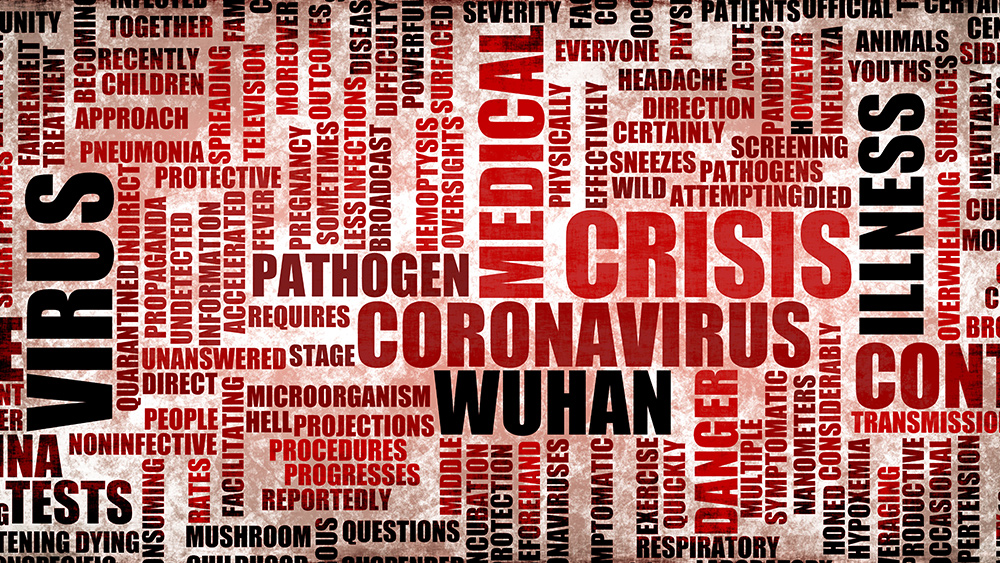Pentagon to start vaccinating troops with the Pfizer vaccine
12/23/2020 / By Franz Walker

The Department of Defense (DOD) is planning to inoculate 44,000 military personnel with Pfizer’s Wuhan coronavirus (COVID-19) vaccine as early as next week in what officials have called a “controlled pilot.”
According to Pentagon officials, initial doses of the Pfizer vaccine will go to a “limited” number of senior military officials and officers. Included in this list are the Defense Secretary and Deputy Defense Secretary, the Chairmen and Vice-Chairmen of the Joint Chiefs and others. But the majority of the initial doses will go to military healthcare workers.
The doses will only cover a small fraction of what the military needs to vaccinate everyone in DoD care. This includes the one million active-duty personnel and more than nine million benefits-receiving veterans.
Shots to be limited to critical personnel
Pentagon officials could not say when they expect to have the entire force vaccinated. A chart that has been distributed to media shows that personnel involved in “critical national capabilities” as well as those expected to deploy outside the country are included in “Phase 1” of the military’s vaccination plan, but not part of the initial 44,000.
“It’s going to be contingent on how much vaccine, what different types of vaccine we get over a period of time that we would be able to tell you, based upon our schema, we expect to be able to do X hundreds of thousands by the end of January versus February,” said Assistant Secretary of Defense for Health Affairs Thomas McCaffery. “So it’s hard to give you a timeline now with so many questions to be determined in terms of which vaccine and how much we get and when we get it.”

McCaffrey added that what was important was that the military has developed a planned program for the vaccine’s dissemination.
“We are confident we will be able to use our plan to very quickly [disseminate the vaccine],” he added.
As part of the plan, the DoD has designated 16 sites as initial distribution sites for the vaccine. These include three sites abroad in Germany, Japan and South Korea.
DoD’s vaccination plan lags behind China’s and Russia’s
The DoD’s vaccine plan comes after both Russia and China have already moved to vaccinate their military personnel. According to Russian media, the country has already vaccinated some 400,000 military personnel. Meanwhile, China approved the use of an experimental vaccine for the military in June.
But Chief Pentagon spokesman Jonathan Hoffman downplayed how the U.S. military seemingly having to play catch up would affect readiness.
“We’ve been relatively fortunate. A large number of our forces are in age criteria, health status, where we’ve fared better than others,” Hoffman said. “We’re confident, a month, two months, three months, four months, we’re going to be able to move forward with all the DoD missions we’ve been entrusted with, the way we have over the last year in the face of COVID.”
Vaccination to be voluntary as doubts linger about Pfizer’s vaccine
While the slower rollout of the vaccine for U.S. troops could be seen as affecting their readiness, one benefit is that it could protect more of them from any harmful side effects from the vaccines.
Even as Pfizer’s vaccine – the one the DoD is planning to use – gets the nod from the Food and Drug Administration for use in the U.S., reports are still coming in that it may have some unfortunate side effects.
The FDA has recently confirmed that at least four volunteers who had been given shots during the trial stage developed Bell’s palsy. This is a condition that causes half of a patient’s face to droop. In addition, vaccine volunteers also reported getting appendicitis.
One other measure that may prevent American troops from any ill effects of the vaccine is the fact that they won’t be required to get the shot.
“Voluntary for everyone,” Defense Health Agency chief Lt. Gen. Ronald Pierce told reporters at a press conference at the Pentagon. “No ifs, ands or buts about it. Voluntary for everyone.”
As it stands, military personnel may choose to opt-out of the shot. But that may only be for now and Hoffman stated that the DoD’s policy may change once the FDA has fully licensed a vaccine.
“At that point voluntariness may change to mandatory,” Hoffman said. “That’s a possibility in the future.”
Follow Pandemic.news for more on how countries are racing to deploy COVID-19 vaccines.
Sources include:
Submit a correction >>
Tagged Under:
coronavirus, covid-19, Department of Defense, DoD, Flu, military, outbreak, pandemic, Pfizer, superbugs, vaccination, vaccine, virus
This article may contain statements that reflect the opinion of the author





















